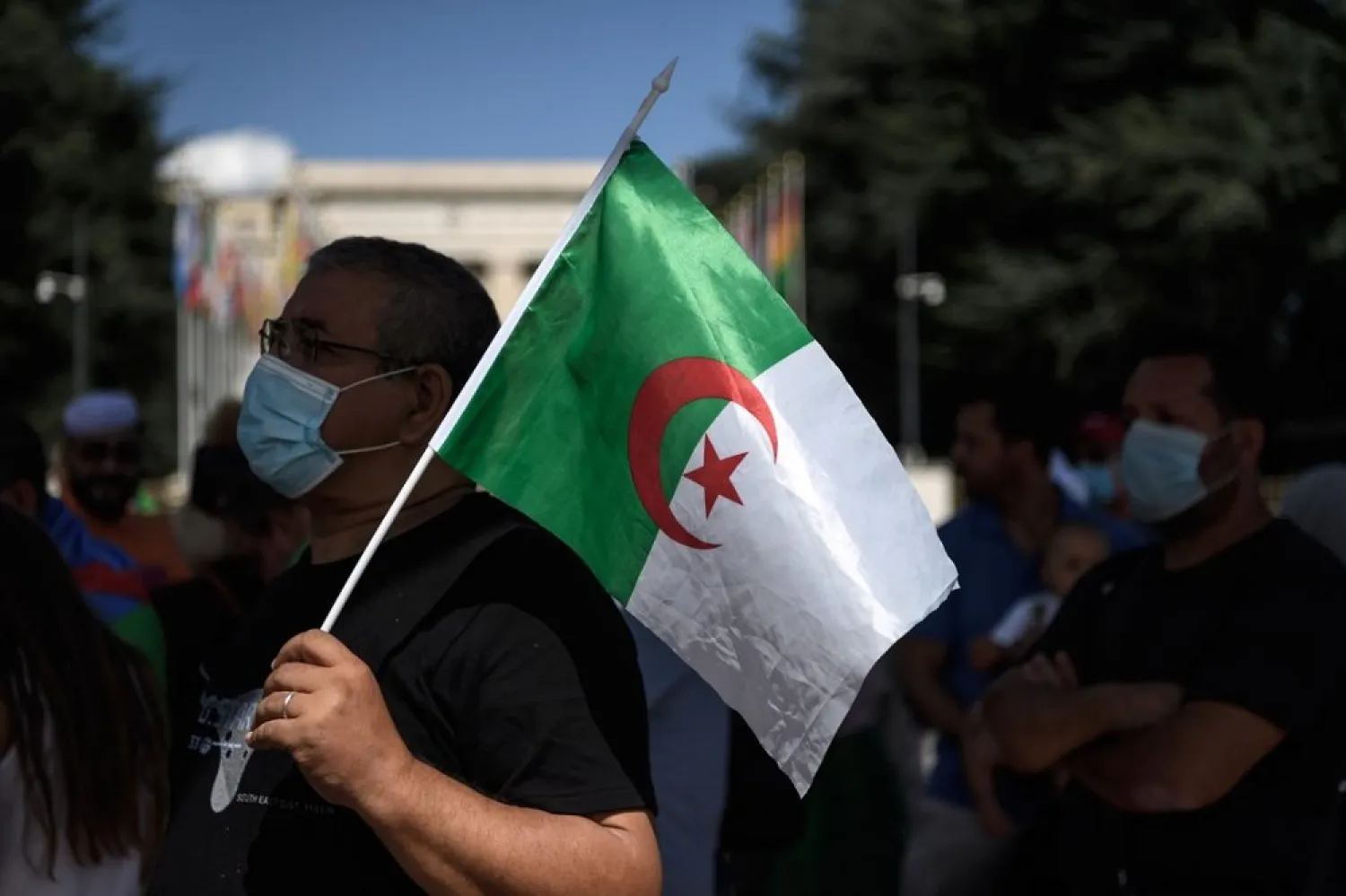Algerian authorities will kick off on Wednesday a political and media campaign to win over 23.5 million Algerians to vote in favor of the constitutional referendum, set for November 1.
The state is employing all of its means and political supporters to this end, while the opposition appears defeated, complaining that the new constitution will be imposed on the people even though it does not meet the demands of the protest movement.
Head of the Algerian National Independent Authority for Elections Mohamed Charfi said Tuesday: “It is our duty to persuade the greatest number of registered voters to head to the ballot boxes to cast their vote regardless if they support the referendum or not.”
The campaigners have until November 28 to persuade as many Algerians as possible of their right to vote, he added.
The political class is divided between those in favor of the constitutional change and those opposed to it. The supporters include parties that backed resigned former President Abdulaziz Bouteflika’s run for a fifth term in office. They include the National Liberation Front, which boasts thousands of voters who can rally support for the constitutional change. They also include the Democratic National Rally and Rally for Hope for Algeria (Tajamou Amel el Djazair). Significantly, the three leaders of these parties are in jail on corruption charges.
The second camp, which is adamantly opposed to the referendum, had boycotted last year’s presidential elections. Main parties include the Islamist Justice and Development Front, headed by Sheikh Abdallah Djaballah, who labeled as “atheists” supporters of the constitutional change. Other members of the camp are the Islamists of the Movement of Society for Peace, who believe that the new constitution is a “war on the identity and principles of Algerians.”
Opponents of the change also include the secular Rally for Culture and Democracy, which explained that the amendments keep all of the “inflated” privileges that Bouteflika had accorded to the political authority. The party enjoys support from Amazigh tribes, whom observers believe will widely boycott the vote as they did the presidential elections.
The Association of Algerian Muslim Ulema on Monday expressed its reservations over the constitutional changes, saying they “threaten the future of the nation”, “harm the national identity” and are “vague about the position of Islam and on freedom of worship.” It also criticized the amendments for failing to address national unity and the discrepancy over official languages in Algeria.
President Abdelmadjid Tebboune defended the changes on Monday, saying they achieve a balance of power among authorities, expand the freedoms on the people, cement the people’s right to an independent judiciary, eliminate all forms of social and economic discrimination, boost equality among the people and provide the means to combat all forms of corruption.









